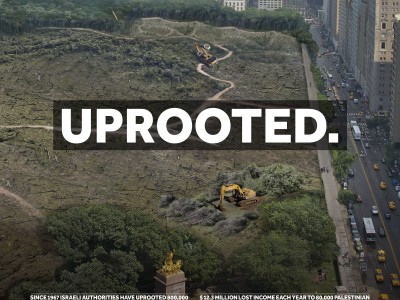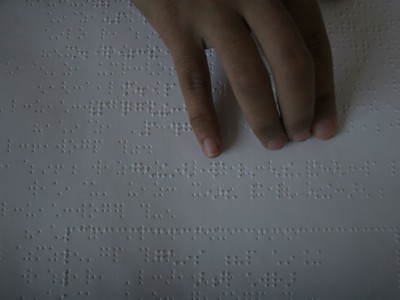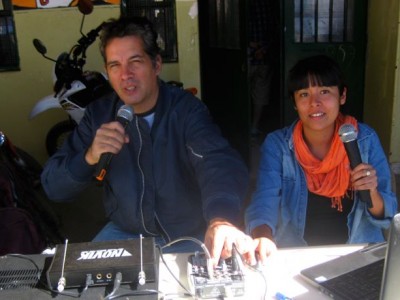 Leila Nachawati
Leila Nachawati is a Global Voices contributor and a member of the
SyriaUntold team – a project which began one year ago. The project aims to explore the storytelling of the Syrian struggle and the diverse forms of resistance. We interviewed Leila about how the past year has gone.
With mainstream media focusing increasingly on geostrategic and military aspects and less on internal dynamics developing on the ground, the group of SyriaUntold contributors believes there are many aspects of the Syrian struggle that remain uncovered – and this is what they hope to do.
Rising Voices: How has the organisation evolved in the past year?
Leila Nachawati: We are now in the process of establishing ourselves as an association, institutionalizing our practices within the team, and streamlining the process. Regarding our work, we're happy to see how our contents are getting re-published by several other platforms, used and referenced by journalists, activists, researchers and others who want to get a better understanding of all the stories related to civil society building, grassroots work, art and creativity in Syria.
RV: What have the responses been to the content you publish?
LN: We see there is interest in Syria but also many challenges to understanding the situation on the ground. There is increasing skepticism and apathy related to the difficulties to verify contents, the influence of geopolitical discourses, etc. We think our role is more important than ever to fill the vacuum regarding the grassroots work and civil society building and putting into context.
RV: What were some unexpected challenges as a new organisation?
LN: We face technical challenges related to the difficulties of coordinating our work, considering that we live in different countries and a significant part of our team is inside Syria, which also poses security challenges. Both the members of our team and the groups we work with on the ground require constant security considerations. Amid increasing militarization and geopolitical battles, there are many restrictions to the work of SyriaUntold, but we try to maintain our focus, expand this space and remain as inclusive as possible to avoid the threat of polarization.
RV: What do you see happening in the future for SyriaUntold?
LN: We aim for a Syria that maintains its inherent diversity and richness, based on the rule of law and where freedom of expression is guaranteed and a strong civil society can flourish. We wish to be part of this development. When people look back at these years, they will be able to access an archive of historic memory related to the civic movement providing a different perspective from the predominantly military and geopolitical ones.
RV: What is SyriaUntold's relationship to current events happening on the ground in Syria?
LN: It is not so much that we focus on alternative stories, as it is about highlighting the human dimension, the civil society building aspects, the art and creativity that were inherent to the Syrian uprising from the beginning and remain at the core of the civic movement throughout the country. We don't live in a bubble, we are not disconnected from the events taking place, which can actually be followed through SyriaUntold, but with approach that focuses on aspects that are usually under reported, sometimes invisible to the rest of the world. We try to fill a void of coverage regarding the work that is being done to overcome the increasing violence, and re-build within an extremely challenging environment. Despite the increasing violence and militarization, these stories exist, and they remain a crucial part of Syria.
RV: Can you share a few projects you've shared over the past year that you think everyone should know about?
LN: Some pieces I would highlight:
 Leila Nachawati is a Global Voices contributor and a member of the SyriaUntold team – a project which began one year ago. The project aims to explore the storytelling of the Syrian struggle and the diverse forms of resistance. We interviewed Leila about how the past year has gone.
Leila Nachawati is a Global Voices contributor and a member of the SyriaUntold team – a project which began one year ago. The project aims to explore the storytelling of the Syrian struggle and the diverse forms of resistance. We interviewed Leila about how the past year has gone.


